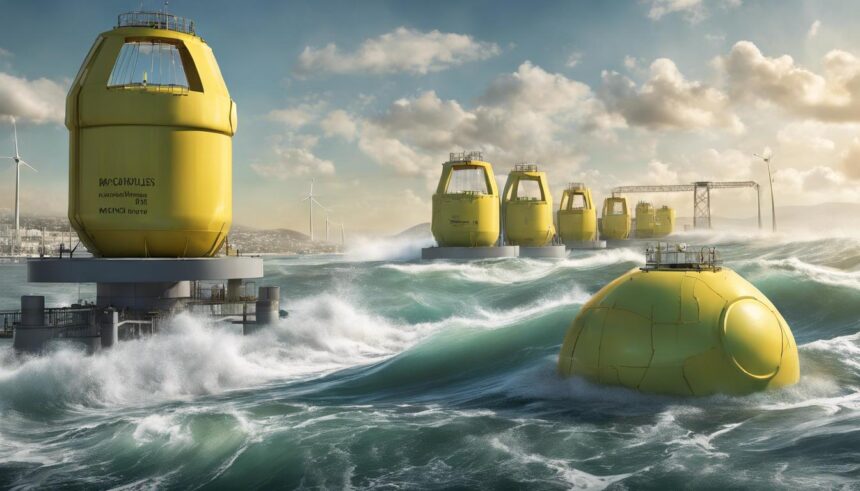Eco Wave Power collaborates with a leading energy provider to set up the first U.S. wave energy pilot station in Los Angeles, aiming to expand sustainable energy solutions across the nation.
In a significant leap towards diversifying America’s renewable energy sources, Eco Wave Power Global AB has teamed up with a leading energy provider to set up the first-ever wave energy pilot station in the United States, specifically at AltaSea in the Port of Los Angeles. This collaboration aims to explore the potential of generating power using ocean waves, a crucial move towards achieving sustainable energy solutions.
Eco Wave Power, a notable player in onshore wave energy technology, has already made strides globally with the successful integration of its technology in places like Tel Aviv, Israel. The connection of the EWP-EDF One power station to Israel’s national grid marked a historic moment as the country’s inaugural venture into wave-derived electricity. This progress augurs well for the upcoming pilot in Los Angeles, indicating potential success in the application of this renewable energy technology in the U.S.
The selection of Los Angeles as the site for this pioneering project is strategic, benefiting from the city’s expansive coastlines and progressive environmental policies. The feasibility studies conducted by Eco Wave Power and the partnered energy company have identified numerous other locations across the U.S. that could support similar technology, revealing that there are at least 77 potential sites where wave energy stations could feasibly be established.
The push towards wave energy in California is further supported by recent legislative actions such as Senate Bill 605, signed by Governor Gavin Newsom. This bill paves the way for an extensive study into the feasibility of wave and tidal energy resources along California’s coastline. If successful, it could serve as a foundation for expanding wave energy projects throughout the state and beyond.
Wave energy presents an attractive renewable resource, with the National Renewable Energy Laboratory estimating the U.S. could generate over 1,400 TWh/year from this source alone—enough power to supply approximately 130 million homes. The implementation of wave energy technology like that of Eco Wave Power could thus play a critical role in reshaping America’s energy landscape.
Wave power harnesses the energy of ocean surface waves to generate electricity. Unlike solar and wind, wave energy is highly predictable and can produce electricity around the clock, providing a more constant source of renewable energy. Eco Wave Power’s technology captures the motion of the waves with uniquely designed floaters attached to existing structures like piers and breakwaters, converting mechanical motion into clean electricity without the need for new offshore structures that can be costly and environmentally intrusive.
The pilot project at the Port of Los Angeles not only demonstrates a significant advancement in the application of sustainable marine technologies but also aligns with global environmental goals and national initiatives to curb carbon emissions. Eco Wave Power’s endeavors, supported by international recognition and funding from entities such as the European Union and Innovate UK, signal a promising advancement in the fight against climate change.
As this project develops, it will likely attract further interest and investment into wave energy, potentially setting a precedent for future projects across the United States and globally. With a total project pipeline capable of producing 404.7MW, Eco Wave Power is positioning itself as a leader in the sustainable energy sector, ready to tackle the pressing challenges of energy production and environmental conservation. The success of this pilot in Los Angeles could be the beacon that guides further expansion and adoption of wave energy technology, marking a wave of change in renewable energy exploration.





